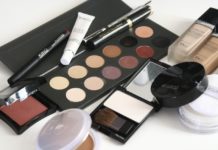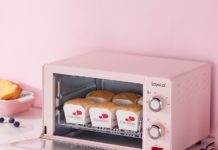Nothing decorates a bathroom like high-quality wall and ceiling cladding. This is a complex process that will take time and some money. Often a person gives all the work to a professional, because the installation of tiles requires special care. However, we must not forget about the correct choice of tile adhesive, which will allow the structure to hold out until the end of the established period. The editors of the site "bestx.htgetrid.com/en/" have prepared for you a rating of the best tile adhesive for 2020.
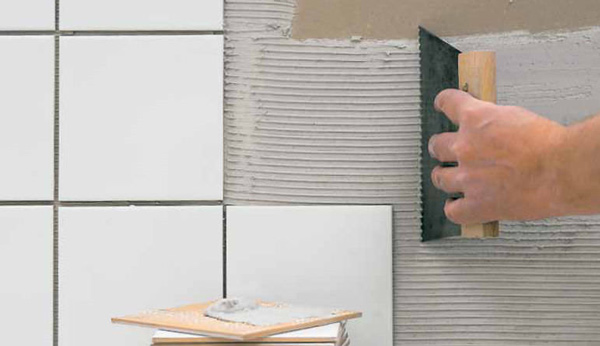
Content
Main requirements
The standard mix of sand concrete has proven itself for a long time, but the current market situation dictates new rules. Manufacturers create glue that has unique properties, is reliable and safe. The main advantages of such formulations:
- Durability, unlike concrete and sand mixture. So, modern glue lasts for tens of years, while the room looks fresh and natural, like after renovation.
- Precise proportions that allow it to be used even for large-scale construction.
- Easy operation, even an amateur can handle the glue, while the work will be done efficiently.
- Low consumption, but high strength. This advantage became one of the main ones when choosing.
- The assortment is replenished annually, the builder will select the best option in a short time or in a couple of clicks.
We must not forget about the key requirements that are put forward when buying tile adhesive. Thanks to them, a person will buy a reliable model:
- The glue should instantly grasp an object of almost any weight. He must also securely fix the element so that the risk of accidental falling or peeling is minimized.
- So that the composition does not spread over the front surface and does not spoil the appearance, it is important to take into account its plasticity.
- However, this requirement is meaningless for a floor slab where an option is required that fills all cavities. Therefore, it is recommended to buy models with high flowability.
- Fast curing is good, but moderate curing is even better. Therefore, choosing from two products of the same properties, preference is given to the option with medium solidification. Thanks to this, a person will be able to correct the stove in time, making it smoother.
Composition of tile adhesives
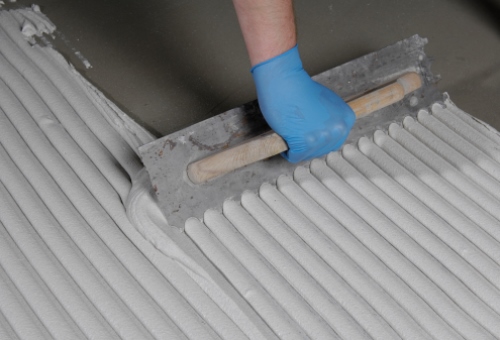
Depending on the composition of the product and its main features, there are 4 models:
- A product that uses cement as a base;
- Epoxy adhesive;
- Acrylic dispersion, made on the basis of water;
- Polyurethane products.
Briefly about each species
Cement adhesives are of low cost. For this reason, most consumers prefer this option. This price tag is due to the fact that the composition includes cheap cement and available sand, and some polymer additives are also present. Thanks to these ingredients, a product is obtained that is resistant to water, has good plasticity, and adheres well to almost any cladding material.
Before you start using, the solution must be diluted with water in the specified proportion. It is also worth remembering that the product sets for a few seconds, so the work must be done quickly. The amount of polymer additives affects elasticity.
For products that have a smooth surface, use epoxy adhesive. The product has a multi-component composition, there is an acid-type hardener and a special resin. Before carrying out repair work, it is important to mix the two products according to the instructions. Users highlight the benefits:
- Tight fixation of materials, so not a single element falls off;
- It is not necessary to wait until everything becomes dry in the room, the product is also used in wet rooms;
- The components are resistant to frost conditions;
- After the liquid dries, traces of cracks, as well as hints of their formation, are absent;
- The glue does not stain porous products.
In addition to the positive aspects, this view has a couple of disadvantages:
- The cost of epoxy glue is about 10 times higher than cement;
- You cannot mix the components "by eye", it is important to strictly follow the instructions on the package;
- Crystallization of some elements in the cold.
Acrylic glue is used by many professionals for the reason that the product is versatile. Due to its high adhesion, it is used both for bonding plastic materials or porcelain stoneware, and for metals or glass. Therefore, this product has become the best companion at every construction site. After purchasing the glue, a person can immediately use it, since the material does not need to be premixed. Which is an added benefit. Also, the product does not emit toxic fumes.
The only drawback of acrylic glue is the price. So for 25 kg, the buyer will give 10,000 rubles, but the expense is not as big as in the previous options.
Polyurethane adhesive. This product is sold in stores in two flavors: one-part or two-part. The composition is brought almost to perfection, which gives a person:
- Increased resistance to chemical connections;
- The product does not absorb moisture;
- Able to function at negative temperatures up to -55 degrees, the maximum positive value is +125;
- After a person glues the necessary element, it is enough to wait a couple of seconds for a reliable hitch to occur;
- The product provides insulation;
- There is no release of bad odor.
Each composition of polyurethane adhesives is designed for a specific case. Some are suitable for use in the system of "warm" floors, while the second is used for processing materials that face loads.
Types of glue by method of application
There are only 5 main categories of glue classification in the world:
- A product designed for interior work. Such an adhesive composition is budgetary and is designed for tight adhesion of materials made of ceramics to a concrete base. Manufacturers add a minimum value of special additives, which is why it is not recommended to use the product outside the walls. Because with the first rain or frost, the main properties will disappear and there is a possibility of peeling off. This is indicated on the packaging.
- Product of increased fixation. This option is intended for people using large tiles or natural stone. Thanks to the good components in the composition, the glue withstands stretching and is tightly fixed. This allows the product to be used in extreme conditions. Also a great advantage - there is no need to clean the surface from the traces of previous cladding.
- Universal. This model is respected among builders. Suitable for both outdoor and indoor use. Cannot withstand a room with high humidity and sudden temperature fluctuations. In addition, it is not recommended to use the product with slabs, the size of which is 30x30 cm. In this case, it is worth purchasing another glue.
- Moisture resistant. This type is used for tiles that will be placed in the bathroom. Due to the fact that a hydrophobic modifier is present in the composition, such a product is used in the construction of original fountains or in the construction of sports pools.
- Composition for fixing floor tiles.The glue uses a plasticizer, thanks to which not a single cavity will be left unattended and will be filled. However, it is impractical to use such a product for vertical surfaces. In other cases, it is often compared to universal.
Pros and cons of dry mixes and ready-made
In stores, there are two types of glue: ready-made, which is sold in buckets and does not require additional human intervention, and dry, must be mixed to obtain the desired concentration.
The main representative of dry mixes is cement glue. The advantage of this solution is that the product can be laid on almost any surface, including an uneven one with pores or projections. Because, in addition to its main function: gluing, it evens out the work surface. Also, its cost rarely reaches 10,000 rubles per 25 kg, which makes it affordable and common among amateur builders.
Ready mixes are used in the construction of expensive facilities. A representative of this type is a polyurethane mixture. Before application, the surface is thoroughly cleaned from traces of dirt and polished to a smooth base. Thanks to this, the glue will last over 20 years and will be durable throughout its entire service life.
How to choose tile adhesive
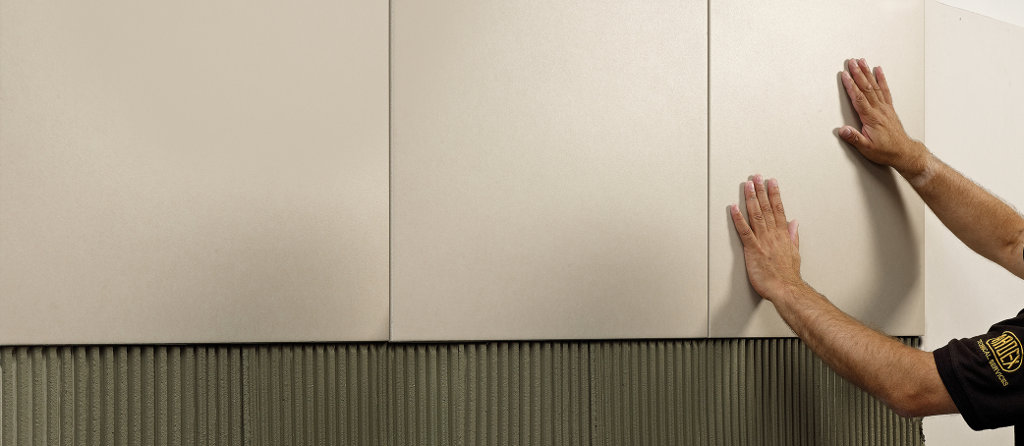
In order not to accidentally confuse the components of the glue or buy too much when you come to the store, it is important to keep in mind the main characteristics of the product, with what materials it will be used (type of cladding) and on what surface. After answering these questions, a person will select the option that will last as long as possible.
Criterias of choice
- Where the tile adhesive will be applied. If a person plans to make repairs in the bathroom or in the kitchen, then a standard mixture is a good option. It is designed to ensure that the tile adheres tightly to the selected surface. We must not forget that during the renovation in the bathroom, moisture-resistant components are used that will not allow the structure to collapse over time. Some users, due to limited budget, use a universal tool, and the grout that is present between the plates is made from a special product.
- Cladding type. Experienced users understand that before purchasing the selected glue, not only the area where the repair is being carried out is taken into account, but also what materials the product will work with. So when choosing cement mixes, it is important to understand that this type is not intended for wood cladding. Each surface is easy or difficult. Light materials include such materials: concrete, brick, etc. Complex - glass, plastic, plasterboard, etc. In addition, difficult bases include those that are exposed to prolonged mechanical stress or vibration. For finishing brick bases, glue up to 0.5 MPa is used. In other cases, attention is drawn to the composition with a coefficient of more than 1 MPa.
- Dimensions of slabs. This point is given attention if a person works with vertical surfaces. The main rule here is that the larger the element, the more strength should be contained in the composition. The rest is simple.
Tile adhesive rating
Ceresit CM-11

This product contains dry cement mixture, polymer additives and special natural fillers. This increases the service life and adhesion. It is used for the installation of ceramic plates, whose dimensions do not exceed 40x40 cm. Also, it is important to consider that it is better to apply the mixture on a flat surface that has no defects.
The consumption of glue does not exceed 7 kg per sq. m. It is recommended to apply the glue to a warm substrate (from +5 degrees). Drying speed of the mixture - 24 hours. At least an hour of time is allotted for cooking, then the resulting liquid is considered suitable for further use. It is impossible to use in rooms with high humidity, as adhesiveness is lost.
Average cost: from 340 rubles per 25 kg.
Advantages:
- Plastic;
- Ease of application;
- Good hold;
- Cost;
- Suitable for small to medium slabs.
Disadvantages:
- Not found.
KNAUF Flisen Plus 25 kg

Another model that is used as a cement base with reinforcing elements. To minimize the risk of defects and the possible consequences of this, the company produces products with constant quality control.
Suitable for indoor and outdoor use. Supports work with materials from porcelain stoneware, natural stone, ceramics, cement screeds, drywall, etc.
When applying the glue, it is important to make sure that the base is free from moisture and the temperature is +5 degrees. The product is used to work with the "warm floor" system, for this you should turn off the heating for 24 hours, and then start working. It is not necessary to wet the tiles with water. If adhesive contamination occurs, they should not be allowed to dry; they should be removed immediately.
The average cost is 415 rubles per 25 kg.
Advantages:
- Low consumption;
- Tenacity;
- Suitable for indoor and outdoor use;
- Price;
- Plastic.
Disadvantages:
- Not found.
Moment

This is a dry product intended for facing ceramic tiles, the dimensions of which do not exceed 300x300 mm. To prevent negative consequences when working outside the building, it is important to add an emulsion to the "Moment" mixture. Also, the composition is used as a leveling layer, which allows it to be applied on deformed surfaces.
For 25 kg, the user needs up to 5.25 liters of water. The finished mixture will turn out after 1.5-2 hours. It is necessary to make adjustments within 10 minutes. Operated in weather conditions from -30 to +70 degrees.
The average cost per bag is 178 rubles.
Advantages:
- Price;
- Quality;
- Consumption;
- Brand;
- Operated both inside and outside.
Disadvantages:
- Not found.
Mapei Keralastic

Polyurethane product suitable for natural stone masonry ceramic slabs. Due to its high-quality composition, the product is used both for private repairs and for large-scale construction. Keralastic is not only suitable for floor tiles, it is also used for wall cladding in the bathroom, as it is resistant to moisture.
The glue dries within 8 hours, while the open time is equal to 50 minutes, this is important to consider when repairing. It is not recommended to use when laying transparent materials.
The average cost is 3000 rubles per 5 kg.
Advantages:
- Universal;
- Drying time;
- Used by professionals;
- High adhesion.
Disadvantages:
- Cost.
Dufa styroporkleber D18

Acrylic version, used for decorative polystyrene boards. The form is ready-made, which will save the person time and prevent spoiling the product. The glue dries within 12 hours and is applied to an object with a temperature of +5 degrees.
It is recommended that the work surface is dry, free of dirt and sturdy. Method of application: applied in dots or stripes (depending on the size of the object). Approximate consumption - 3 sq. m per 1 kg, which is a good indicator among similar models.
The average cost is 500 rubles per 3 kg.
Advantages:
- There is no smell;
- Cost;
- Adhesion;
- Easy to operate;
- Safe.
Disadvantages:
- For decorative boards only.
Output
The above are models that are perfect for cladding almost any slab. At the same time, it is important to remember that when choosing a product, you cannot make mistakes, but you should take it seriously. If you have experience using the tile adhesive described in the rating, or a more interesting model, tell us about it in the comments.

